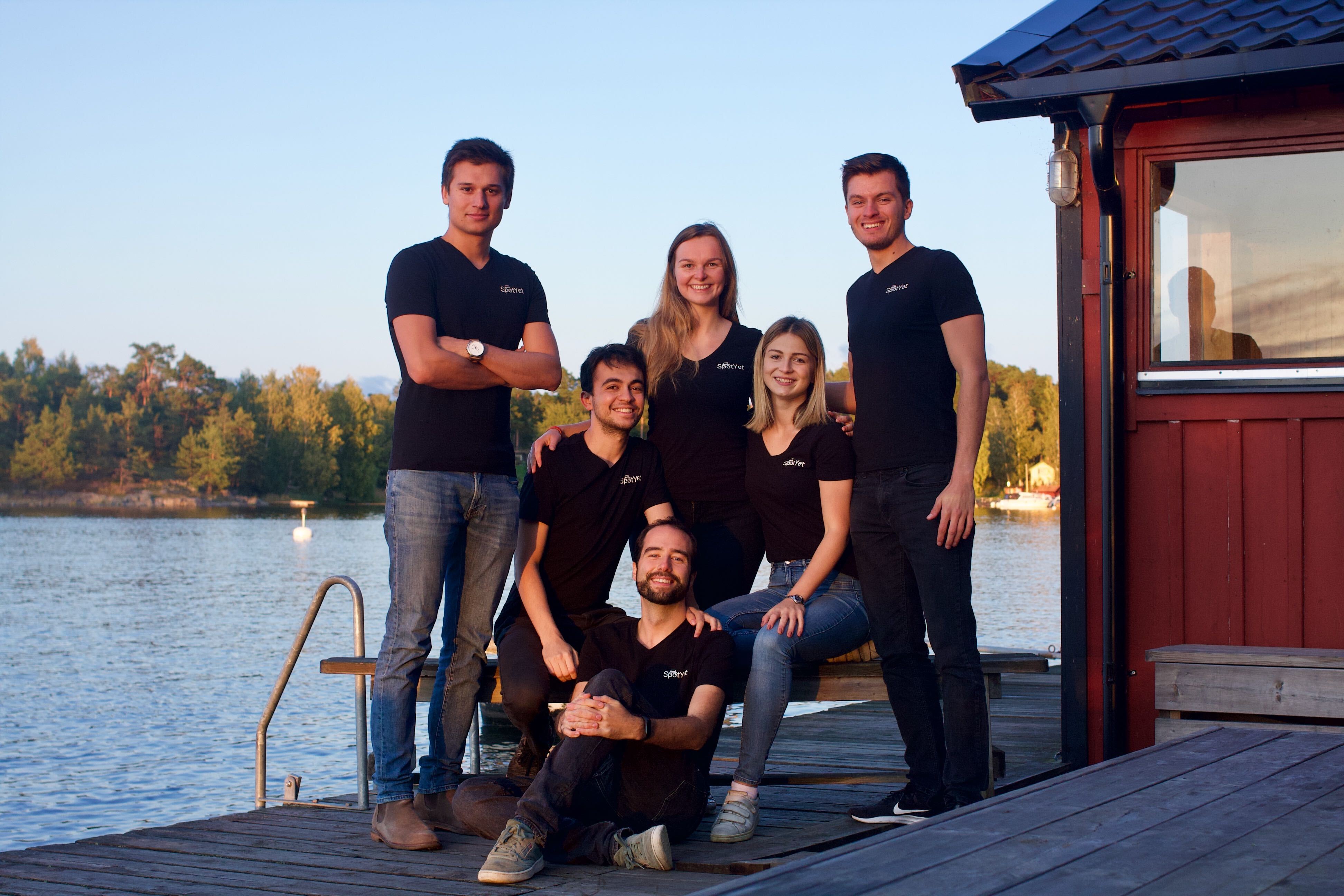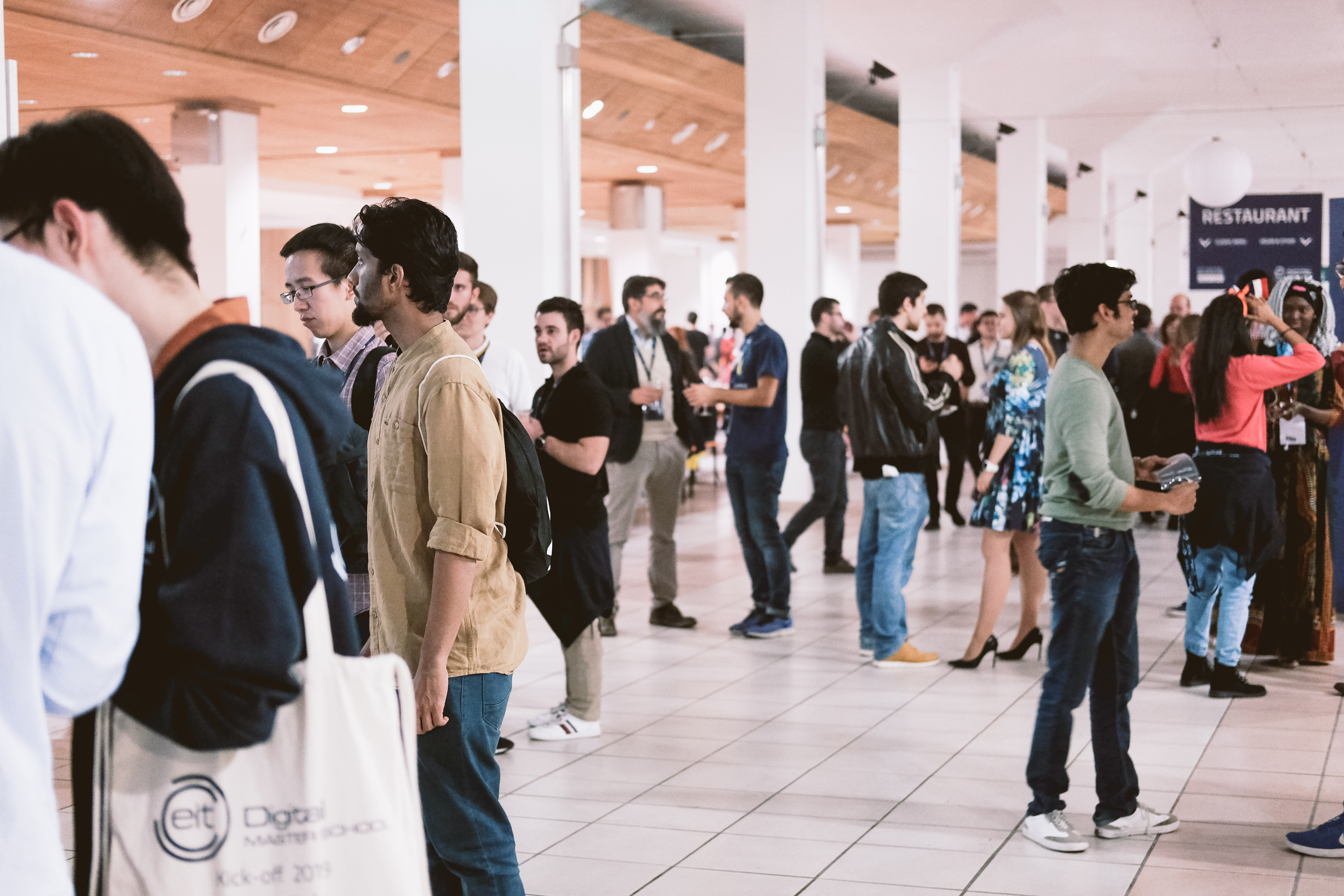What do you do when COVID-19 disrupts your business? Like any good entrepreneur, you adapt! With a networking app that facilitates connections at physical events, SpotYet needed to reinvent itself to fit the new reality. Here’s the story of how that happened.
From Friends to Colleagues
SpotYet started as a networking app - dubbed SpotYet Events (now SpotTalk) - that facilitates connections. Using a matching algorithm, it boosts social interaction and provides support for meaningful conversations between event participants.
“Often, even if you are in a big group, you don’t really meet people because of social boundaries, awkwardness, etc.,” Peter Lakatos, one of SpotYet’s co-founders, explains. “SpotYet helps you meet new people. We are all about building and fostering relationships.”
Proud products of EIT Digital, the team behind SpotYet met each other in 2018 while doing their Master’s in Data Science in Eindhoven. Initially just a group of friends, they now work together, remotely from Hungary, Italy, Macedonia, Lithuania, Sweden and The Netherlands.

Team SpotYet: Peter Lakatos, Aref Moradi, Guillermo Guridi, Indré Tauroseviciute, Marina Angelovska, Sergiu Lazar & Thomas Gecevicius.
Taking an entrepreneurship course together in Eindhoven, the group quickly realised how well they complement each other. “We were working on an assignment together and it went so smoothly, we saw that we had a well-functioning team,” says Peter. “We were all good in different disciplines, yet we were very like-minded. It was natural to work together.”
Is that all it takes for friends to become colleagues? “Well, Stockholm has a lot of scenic locations, so we deliberately held getaway weekends where we would go offline and focus on our project: SpotYet,” Peter shares.
Building a Team
“That’s when we lay down the rules of foundation: we agreed on a set of values, and shared our future aspirations. This helped us build camaraderie as a startup, but also as friends. We now have guidelines to measure ourselves against, and this helps structure our work.”
When pressed further about what that entails, Peter explains, “We always have someone different facilitating and chairing our meetings. Everyone respects the facilitator’s authority, and the leadership role rotates so no one person is always the leader.”
In practice, the group is divided into two: half does business, and half does development. “It’s easier if you know what to expect and what they’re capable of. No surprises. There’s trust, no micromanaging, no worrying about quality.”
“It’s all about making friends, networking, finding the right people who complement you. That’s what we’re all about in SpotYet.” For a moment it seemed unclear what Peter was referring to - the product or his team - until I realised the line is thin. Peter and his team look like they’d found a confluence of values between teamwork and business.
SpotYet in Action
After emerging as winners of the What the Hack! hackathon in Leuven, Belgium, SpotYet built the first prototype within a few months. Things escalated quickly after that.
“SpotYet was used as an ice-breaking activity at 11 EIT Digital summer schools last year. We were also present at the Master School Kickoff, where 250 people played our networking game, each meeting 6 to 7 people in about 30 or 40 minutes,” Peter recounts.

SpotYet in action at the EIT Digital Master School Kickoff
These opportunities were greatly helped by Akos Wetters, one of the team’s professors at the Eindhoven University of Technology. “He saw potential in us, and helped navigate us in the building of our idea. We participated in (summer school) coordinators’ meetings, and we were also business mentors at the Kick-off,” says Peter, explaining how SpotYet got its first big breakthroughs.
“The good thing is that the people in EIT Digital always want to help its homegrown initiatives. We didn’t have to knock on too many doors. EIT Digital is quite compact after all.”
Overcoming Challenges
But then everything changed. When the coronavirus pandemic hit, all events from March onwards were cancelled. “It killed our business model,” says Peter.
To find a solution, the team got together and held a series of meetings. “We had several ideas bouncing back and forth. There was a lot of uncertainty - how long is this going to last? Will it go away soon, or will we have to live with it for years? It took weeks to convince ourselves that this is the path forward. There was no eureka moment, just lots of hard work.”
That’s how SpotBot - initially dubbed SpotYet Virtual - was born. “It wasn’t easy, but we adapted, we started a second product. We are proud of the fact that we were flexible enough to create a whole new concept with the same fundamental idea.”

Thus, from a networking game that helps event participants meet each other, SpotYet evolved to launch a Slackbot that helps connect teams working together remotely!
So.. what next?
“At the moment we are pursuing leads and growing the business. We’re relying on personal contacts and participating in HR and innovation conferences around Europe. We also do cold calls, and our mentors introduce us to large companies. Right now we are targeting tech companies and higher level institutions. ”
EIT Digital, in the meanwhile, remains a core support structure for SpotYet. “This year’s new Master’s students have a Slack channel, and SpotBot is on it. We are also discussing with the innovation centres of KTH and Eindhoven - to help their teams onboard and get to know each other,” says Peter.
And what about the team? “We probably won’t settle down in one place after Corona. We will continue as a remote team. Who knows what comes next,” says Peter, smiling as he ponders the future.
--
SpotYet is a participant of the EIT Digital Alumni Startup Contest 2020. Watch Sergiu Lazar Angelescu’s contest pitch on behalf of SpotYet.
Author: Gaffar Rampage
Editor: Jiayao Yu
